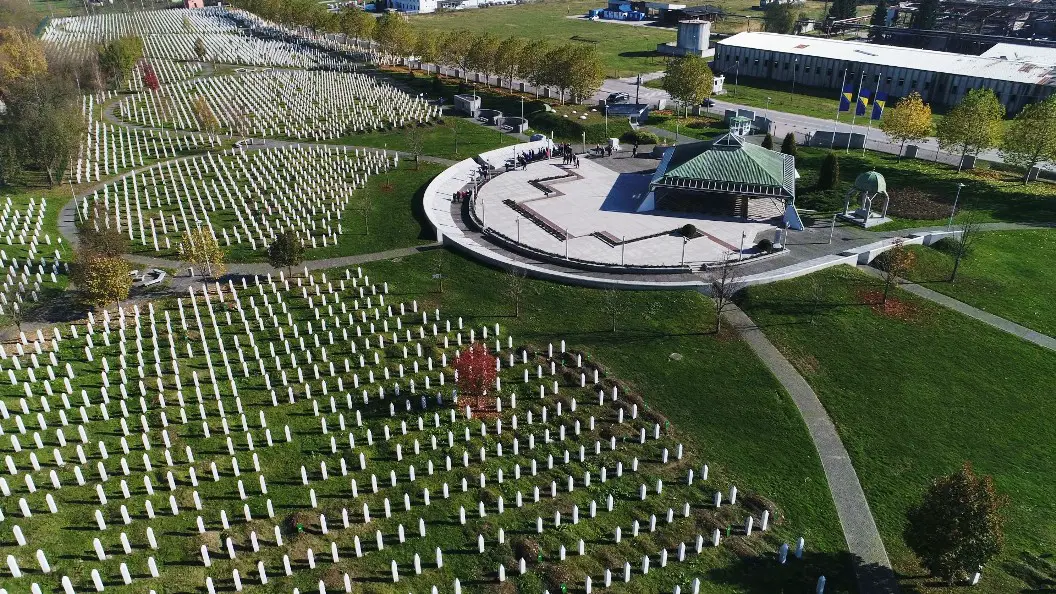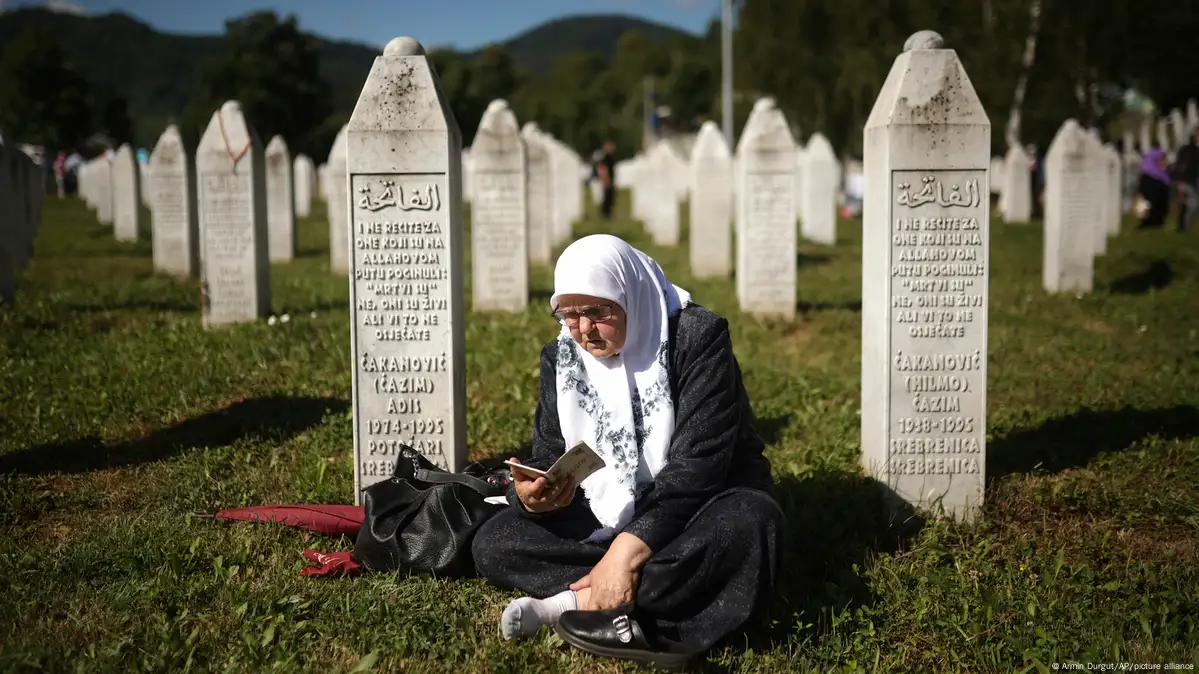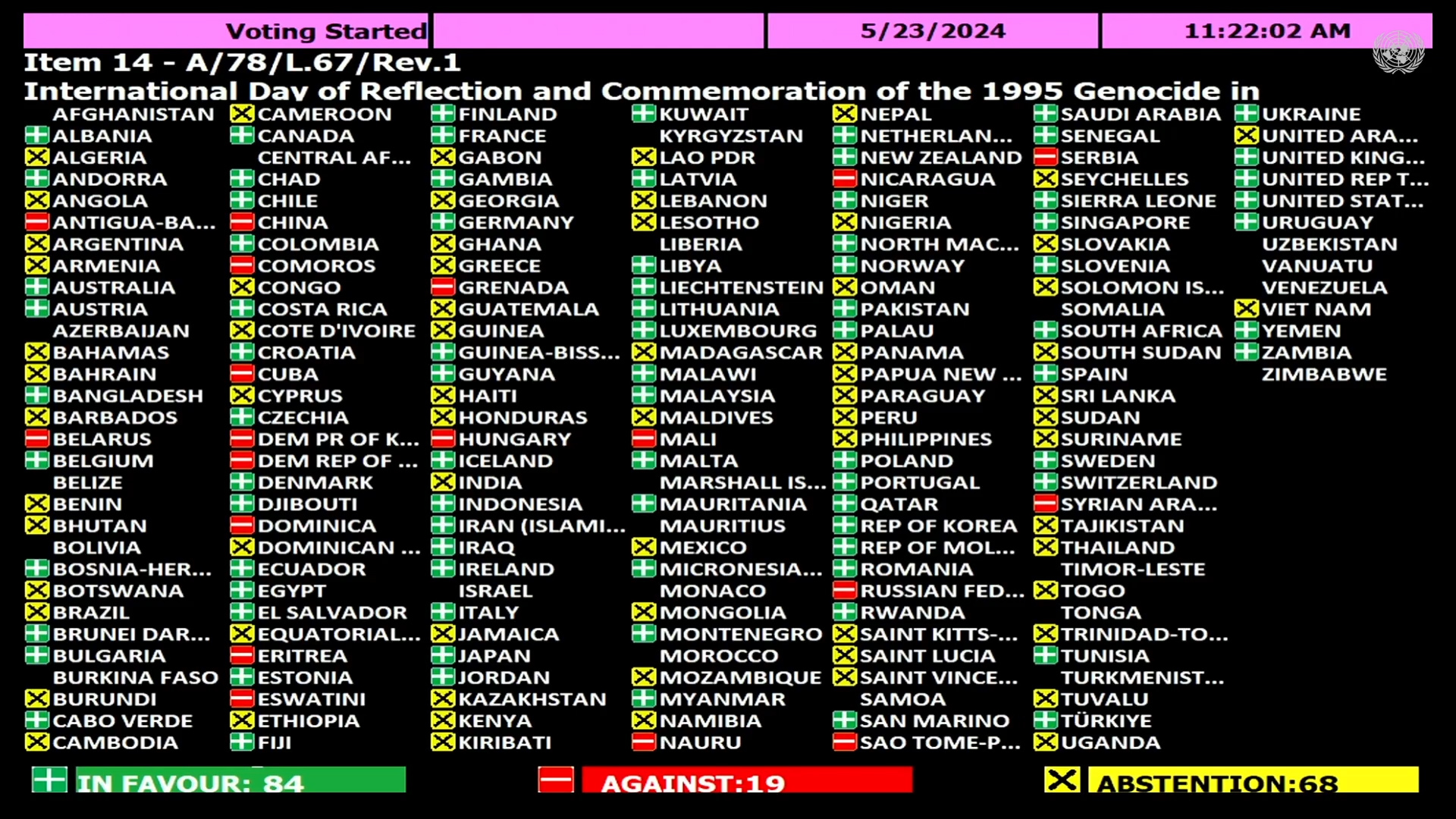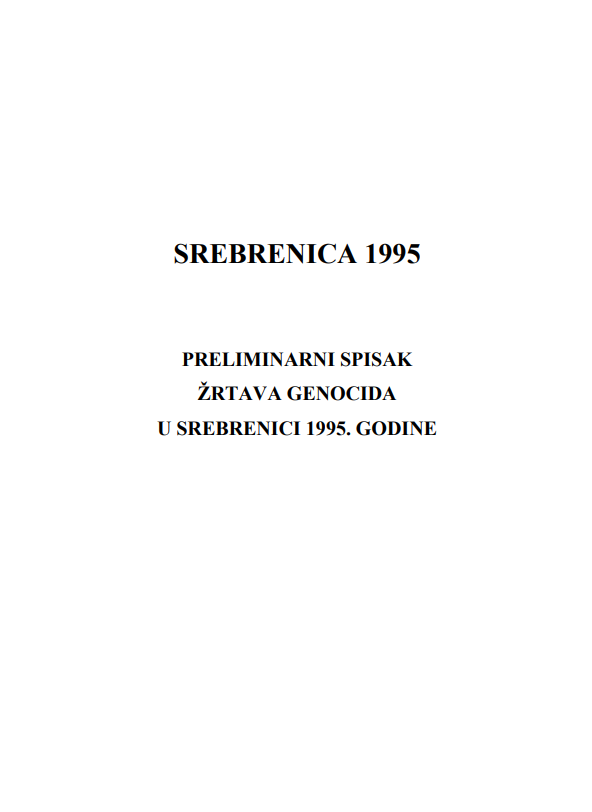Srebrenica-Potočari Genocide, July 11–19, 1995.
1
Genocide
The genocide in Srebrenica, committed from July 11 to July 19, 1995, during the Bosnian War, in which members of the Army of the Republika Srpska killed at least 8,372 Bosniak men and boys from the Srebrenica enclave.
2
Around 25,000 to 30,000 Bosniaks, mostly women, children, and elderly men, were deported from Srebrenica after Serbian forces captured the enclave. The deportation of civilians, along with the mass killing of over 8,000 people, is considered genocide, as confirmed by the courts.
3
Potočari Memorial Center
The Srebrenica–Potočari Memorial Center is a complex dedicated to the memory of the victims of the genocide against the Bosniaks of Srebrenica during the Bosnian War. Located in the village of Potočari, near Srebrenica, the center includes a memorial and a cemetery. A total of 6,838 genocide victims have been identified, of whom 6,066 have been buried in this memorial complex.
The International Day of Remembrance for the Srebrenica Genocide
In May 2024, the United Nations General Assembly, through a resolution supported by Germany and Rwanda, declared July 11 as the International Day of Remembrance and Commemoration of the 1995 Srebrenica Genocide.
The Assembly also requested the Secretary-General to establish an information program on the Srebrenica genocide in preparation for the commemoration of its 30th anniversary.
The resolution was supported by 84 countries, 19 voted against, and 68 abstained.
Trials for Genocide
Testimonies about the Genocide
As the Srebrenica investigation progressed, the number of “unwilling witnesses” for the prosecution increased at the tribunal’s trials: former members of the Bosnian Serb army and police, as well as representatives of civilian authorities, who most often came to The Hague based on compulsory subpoenas to testify. In court and under oath, they recounted what they had done, seen, or heard during the events of Srebrenica.
Acknowledgments of the Genocide
Three of the total 15 accused members of the Army of the Republika Srpska, after their arrest and transfer to The Hague, reached agreements with the Prosecutor’s Office of the International Criminal Tribunal for the former Yugoslavia (ICTY), through which they confessed to their involvement in the Srebrenica crimes and signed Statements of Facts supporting their confessions. Fifty individuals were sentenced to more than 700 years in prison.
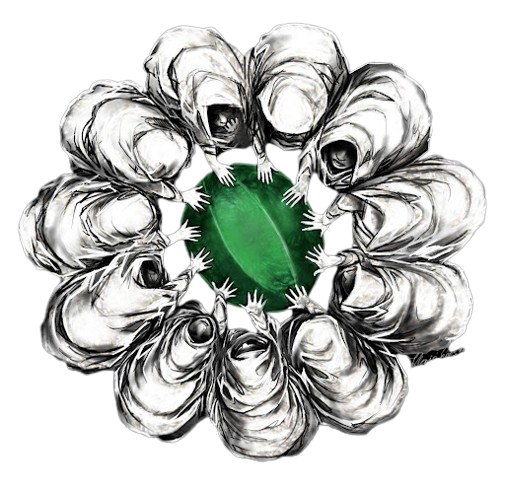
Memorial center Srebrenica
The Srebrenica Memorial Center is open to visitors every day from 08:00 to 16:00. There are no tickets or entrance fees for the visit. Scheduled tours are available in Bosnian or English and include: a documentary screening, a history lesson on the events of July 1995, a Q&A session with an expert, a walk through the cemetery, and the opportunity to visit exhibitions and the multimedia room. Wheelchair users can access all segments of the center.
